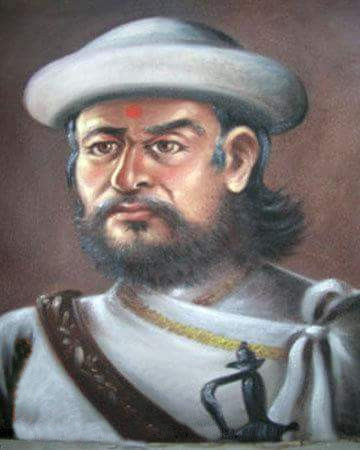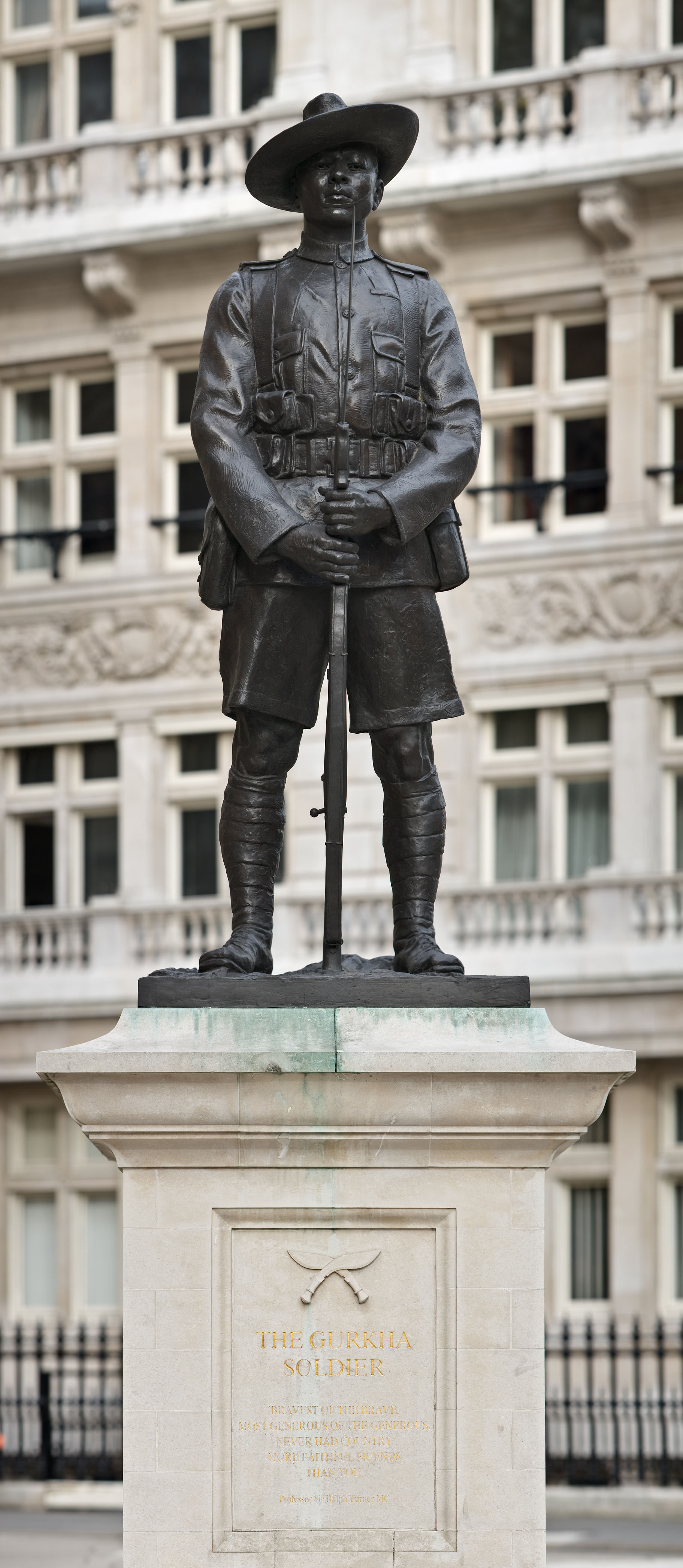|
Jumla Rebellion
The Jumla rebellion ( ne, जुम्ला विद्रोह) was a revolt in the Kingdom of Nepal against the Gorkha conquest of Jumla. The people of Jumla did not accept Gorkhas as their rulers which sparked recurring rebellions. Aftermath In October 1794 the Government of Nepal sent a letter to the people which read: In 1794, Ranajit Kunwar was replaced by Subba of Jumla. Kunwar was given a royal order which said to cancel all fines, restore all slaves, horses, and other things that were unjustly taken. Later, Subba Ranjit Kanwar, Subedar Dhanjit Rana, and other military officials deputed to Jumla, were given another royal order which read: We have now received reports that even then you have enslaved members of the families of the rebels. We had then ordered you to restore such slaves to freedom, but none of you have obeyed the order. You shall be punished if you do not do so even after receiving this order". References Citations * {{Cite web , last=Regmi , firs ... [...More Info...] [...Related Items...] OR: [Wikipedia] [Google] [Baidu] |
Jumla District
Jumla District ( ne, जुम्ला जिल्ला), is one of the ten districts of the Karnali province of Nepal. This district has Jumla as its headquarters, an area of ; it had populations of 89,427 and 108,921, respectively, in the national censuses of 2001 and 2011. Its territory lies between longitudes 81⁰ 28' and 82⁰ 18' East, and between latitudes 28⁰ 58' and 29⁰ 30' North. The Nepali language (then known as Khas language) originated in the Sinja Valley. Sinja was the capital of Khas Kingdom, and the dialect called "Khas Bhasa" is still spoken among that region's people. History Khasa Kingdom Jumla was a part of Khasa kingdom during the 11th to 13th century. After 13th-century, Khasa Kingdom collapsed and divided into Baise Rajya (22 principalities) in the Karnali-Bheri region and the Kingdom of Jumla was one of them. Kingdom of Jumla The Jumla Kingdom was one of the many kingdoms that dotted Nepal before its reunification by King Prithvi Nar ... [...More Info...] [...Related Items...] OR: [Wikipedia] [Google] [Baidu] |
Kingdom Of Nepal
The Kingdom of Nepal ( ne, नेपाल अधिराज्य), also known as the Gorkha Empire ( ne, गोरखा अधिराज्य) or Asal Hindustan ( ne, असल हिन्दुस्तान)(), was a Hindu kingdom in South Asia, formed in 1768, by the unification of Nepal. Founded by King Prithvi Narayan Shah, a Gorkha monarch who claimed to be of Khas Thakuri origin, it existed for 240 years until the abolition of the Nepalese monarchy in 2008. During this period, Nepal was formally under the rule of the Shah dynasty, which exercised varying degrees of power during the kingdom's existence. After the invasion of Tibet and plundering of Digarcha by Nepali forces under Prince Regent Bahadur Shah in 1792, the Dalai Lama and Chinese Ambans reported to the Chinese administration for military support. The Chinese and Tibetan forces under Fuk'anggan attacked Nepal but went for negotiations after failure at Nuwakot. ''Mulkaji'' Damodar Pande, who w ... [...More Info...] [...Related Items...] OR: [Wikipedia] [Google] [Baidu] |
Gurkhas
The Gurkhas or Gorkhas (), with endonym Gorkhali ), are soldiers native to the Indian Subcontinent, chiefly residing within Nepal and some parts of Northeast India. The Gurkha units are composed of Nepalis and Indian Gorkhas and are recruited for the Nepali Army (96000), Indian Army (42000), British Army (4010), Gurkha Contingent Singapore, Gurkha Reserve Unit Brunei, UN peacekeeping forces and in war zones around the world. Gurkhas are closely associated with the '' khukuri'', a forward-curving knife, and have a reputation for military prowess. Former Indian Army Chief of Staff Field Marshal Sam Manekshaw once stated that: "If a man says he is not afraid of dying, he is either lying or he is a Gurkha." Origins Historically, the terms "Gurkha" and "Gorkhali" were synonymous with "Nepali", which originates from the hill principality Gorkha Kingdom, from which the Kingdom of Nepal expanded under Prithvi Narayan Shah. The name may be traced to the medieval Hindu warrior ... [...More Info...] [...Related Items...] OR: [Wikipedia] [Google] [Baidu] |
Brahmin
Brahmin (; sa, ब्राह्मण, brāhmaṇa) is a varna as well as a caste within Hindu society. The Brahmins are designated as the priestly class as they serve as priests (purohit, pandit, or pujari) and religious teachers (guru or acharya). The other three varnas are the Kshatriya, Vaishya and Shudra. The traditional occupation of Brahmins is that of priesthood at the Hindu temples or at socio-religious ceremonies, and rite of passage rituals such as solemnising a wedding with hymns and prayers.James Lochtefeld (2002), Brahmin, The Illustrated Encyclopedia of Hinduism, Vol. 1: A–M, Rosen Publishing, , page 125 Traditionally, the Brahmins are accorded the highest ritual status of the four social classes. Their livelihood is prescribed to be one of strict austerity and voluntary poverty ("A Brahmin should acquire what just suffices for the time, what he earns he should spend all that the same day"). In practice, Indian texts suggest that some Brahmins historicall ... [...More Info...] [...Related Items...] OR: [Wikipedia] [Google] [Baidu] |
Ranajit Kunwar
Ranajit Kunwar ( ne, रणजीत कुँवर) was Nepalese governor and military personnel in the Kingdom of Nepal. He was a son of Ramakrishna Kunwar of Kunwar family. He served as governor of Jumla, Pyuthan and sub-ordinate administrator under Amar Singh Thapa at Srinagar of Garhwal province. He suppressed the rebellion of Jumla as a governor. He fought at the battle of Khadbuda where he killed King Pradyumna Shah of Garhwal. He was the grandfather of Jang Bahadur Kunwar Ranaji who later became the Maharaja of Kaski & Lamjung and Prime Minister of Nepal. Early life He was born to Gorkhali Sardar Ramakrishna Kunwar on 1753 A.D. He was the first cousin of Chandrabir Kunwar, father of Balbhadra Kunwar. Career After the consolidation of Pyuthan in November 1786, Ramakrishna Kunwar opened ammunition factory at Pyuthan. He died there and was succeeded by his son Ranajit Kunwar for the operation of the factory. Ranajit participated as reinforcement to Gorkhali forces under ... [...More Info...] [...Related Items...] OR: [Wikipedia] [Google] [Baidu] |
Sobhan Shahi
Sobhan (1968 – 6 January 2008) was an Indian film director and screenwriter who has worked in Telugu films. He was best known for his work in the film '' Varsham'' (2004). Career Sobhan went to Chennai in 1989 to join the film industry. He initially worked for a film called ''Rowdyism'', which was stalled after 10 days of shooting. He then joined Tripuraneni Varaprasad alias Chitti Babu as co director for Raithu Bharatham, He then joined Ram Gopal Varma as a co-director for ''Anaganaga Oka Roju''. Later, he started his profession as a writer for Krishna Vamsi's film ''Sindhooram'' and worked with him for '' Murari'', and also acted in films like ''Kshana Kshanam'' and ''Oka Raju Oka Rani''. Later, he directed a few episodes of Malayalam TV serial ''Navaneetha'' (2000). During the making of Murari, he was in touch with Mahesh Babu, and that led to the film ''Bobby''. Sobhan was known for his able hand in scripting. He helped many directors during the script sessions of many s ... [...More Info...] [...Related Items...] OR: [Wikipedia] [Google] [Baidu] |
Gorkha Conquest Of Jumla
The Gurkhas or Gorkhas (), with endonym Gorkhali ), are soldiers native to the Indian Subcontinent, chiefly residing within Nepal and some parts of Northeast India. The Gurkha units are composed of Nepalis and Indian Gorkhas and are recruited for the Nepali Army (96000), Indian Army (42000), British Army (4010), Gurkha Contingent Singapore, Gurkha Reserve Unit Brunei, UN peacekeeping forces and in war zones around the world. Gurkhas are closely associated with the ''khukuri'', a forward-curving knife, and have a reputation for military prowess. Former Indian Army Chief of Staff Field Marshal Sam Manekshaw once stated that: "If a man says he is not afraid of dying, he is either lying or he is a Gurkha." Origins Historically, the terms "Gurkha" and "Gorkhali" were synonymous with "Nepali", which originates from the hill principality Gorkha Kingdom, from which the Kingdom of Nepal expanded under Prithvi Narayan Shah. The name may be traced to the medieval Hindu warrior-sai ... [...More Info...] [...Related Items...] OR: [Wikipedia] [Google] [Baidu] |


_Bhumi_Puja%2C_yajna.jpg)

